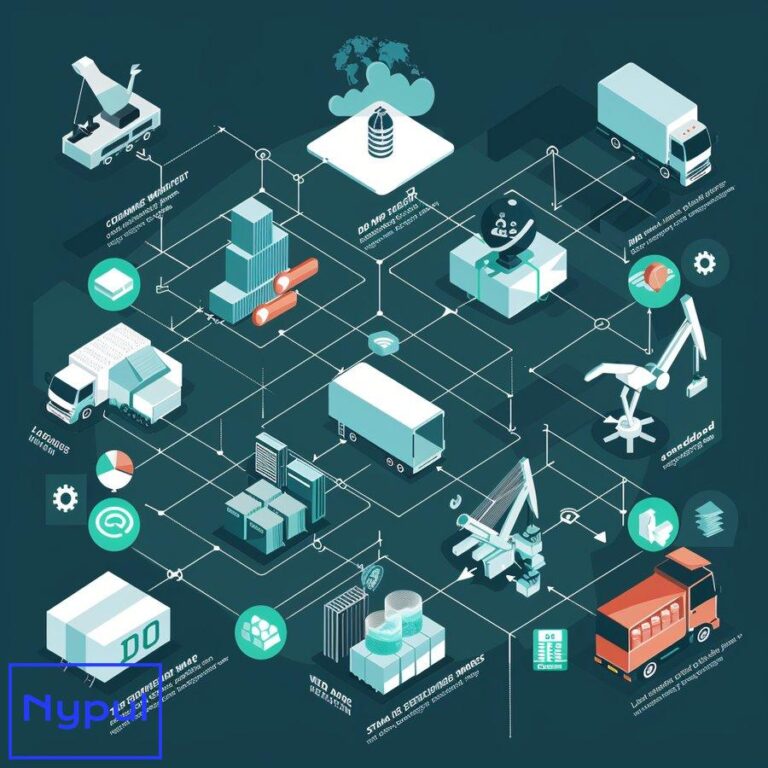What Skills Do You Need to Be a Truck Driver
What are the essential driving skills for truck drivers?
Driving a truck requires a unique set of skills that go beyond merely operating a vehicle. These essential driving skills ensure safety, efficiency, and compliance with regulations.

* *Vehicle Control
Mastering vehicle control is fundamental for truck drivers. This includes:
-
Steering: Effective steering techniques help maintain control, especially during turns and lane changes.
-
Braking: Understanding the braking system of a truck, including air brakes, is crucial. Drivers must know how to apply brakes smoothly to prevent skidding or jackknifing.
-
Acceleration: Proper acceleration techniques help in maintaining speed without over-revving the engine.
* *Spatial Awareness
Spatial awareness involves understanding the dimensions of the truck and its load. Key aspects include:
-
Judging Distances: Drivers must accurately judge distances to avoid collisions and navigate tight spaces.
-
Mirrors Usage: Proficient use of mirrors helps in monitoring blind spots and ensuring safe lane changes.
-
Height and Width Considerations: Being aware of the truck’s height and width is essential when passing under bridges or through narrow roads.
* *Defensive Driving
Defensive driving skills protect drivers from accidents caused by other road users. This includes:
-
Anticipating Other Drivers’ Actions: Understanding and predicting the behavior of other vehicles can prevent accidents.
-
Maintaining Safe Following Distances: Keeping an appropriate distance allows for reaction time in emergencies.
-
Adapting to Weather Conditions: Adjusting driving techniques based on weather conditions (rain, snow, fog) is vital for safety.
* *Load Management
Understanding load management is essential for safe driving. Key components include:
-
Weight Distribution: Proper weight distribution affects handling and braking. Overloading can lead to accidents.
-
Securing Loads: Drivers must know how to secure loads properly to prevent shifting during transit, which can affect vehicle stability.
-
Understanding Cargo Types: Different cargo types may require specific handling techniques (e.g., hazardous materials).
How can you develop technical proficiencies for trucking?
Technical proficiency in trucking encompasses various skills related to vehicle operation, maintenance, and navigation. Developing these proficiencies involves education, practice, and ongoing training.
* *Formal Education and Training Programs
Participating in formal education programs can significantly enhance technical skills. Options include:
-
Truck Driving Schools: Enrolling in accredited truck driving schools provides foundational knowledge about vehicle operation, safety regulations, and industry standards.
-
Certification Programs: Obtaining certifications (e.g., Commercial Driver’s License – CDL) demonstrates proficiency and adherence to regulatory requirements.
* *Hands-On Experience
Gaining hands-on experience is invaluable for developing technical skills. This can be achieved through:
-
Apprenticeships: Working under experienced drivers allows new drivers to learn practical skills in real-world scenarios.
-
Driving Practice: Regular practice behind the wheel helps solidify driving techniques and build confidence.
* *Maintenance Knowledge
Understanding basic maintenance is crucial for truck drivers. This includes:
-
Pre-trip Inspections: Conducting thorough pre-trip inspections ensures that the vehicle is safe for operation. Drivers should check brakes, lights, tires, and fluid levels.
-
Basic Repairs: Knowing how to perform basic repairs (e.g., changing a tire) can prevent delays during trips.
Which soft skills are crucial for success in trucking?
Soft skills play a significant role in a truck driver’s success beyond technical abilities. These interpersonal skills contribute to effective communication, problem-solving, and overall job satisfaction.

* *Communication Skills
Effective communication is vital in trucking for several reasons:
-
Interacting with Dispatchers: Clear communication with dispatchers ensures timely deliveries and updates on routes or delays.
-
Customer Relations: Building rapport with customers enhances service quality and fosters repeat business.
* *Problem-Solving Abilities
Truck drivers often encounter unexpected challenges on the road. Strong problem-solving skills enable them to:
-
Adapt to Changing Conditions: Whether it’s rerouting due to traffic or addressing mechanical issues, quick thinking is essential.
-
Make Informed Decisions: Evaluating situations effectively allows drivers to choose the best course of action under pressure.
* *Time Management
Time management skills are crucial for meeting delivery schedules while ensuring safety. This includes:
-
Planning Routes Efficiently: Utilizing GPS technology helps optimize routes based on traffic patterns and road conditions.
-
Balancing Driving Hours with Rest Periods: Adhering to regulations regarding driving hours ensures compliance while promoting driver well-being.
What regulatory knowledge is required for truck drivers?

Truck drivers must possess a comprehensive understanding of various regulations governing their profession. This knowledge ensures compliance with legal standards while enhancing safety on the road.
* *Federal Regulations
Familiarity with federal regulations is essential for all truck drivers operating across state lines. Key regulations include:
-
Hours of Service (HOS): Understanding HOS regulations helps drivers manage their driving hours effectively while ensuring adequate rest periods to prevent fatigue-related accidents.
-
Drug and Alcohol Testing Requirements: Compliance with drug testing protocols is mandatory for maintaining safety standards within the industry.
* *State Regulations
Each state has its own set of regulations that drivers must adhere to. Important aspects include:
-
Weight Limits: Knowledge of state-specific weight limits prevents overloading penalties and enhances road safety.
-
Permit Requirements: Certain loads may require special permits; understanding these requirements avoids legal issues during transport.
* *Environmental Regulations
Awareness of environmental regulations promotes sustainable practices within the trucking industry. This includes:
-
Emission Standards Compliance: Understanding emission standards helps reduce environmental impact while operating vehicles efficiently.
-
Hazardous Materials Handling Regulations: Proper training in handling hazardous materials ensures compliance with safety protocols and protects public health.
How can truck drivers maintain health and safety on the road?
Maintaining health and safety while on the road is paramount for truck drivers. A proactive approach can significantly reduce risks associated with long hours of driving and limited access to healthy options.
* *Healthy Lifestyle Choices
Adopting healthy lifestyle choices contributes to overall well-being. Key strategies include:
-
Balanced Nutrition: Packing nutritious snacks (fruits, nuts) instead of relying solely on fast food promotes better health during long hauls.
-
Regular Exercise: Incorporating physical activity into daily routines (e.g., stretching during breaks) enhances physical fitness and reduces fatigue.
* *Mental Health Awareness
Mental health plays a critical role in a driver’s performance. Strategies for maintaining mental well-being include:
-
Stress Management Techniques: Practicing mindfulness or deep-breathing exercises can help manage stress levels during challenging situations on the road.
-
Staying Connected with Family/Friends: Regular communication with loved ones provides emotional support during long periods away from home.
* *Safety Protocols
Implementing safety protocols ensures protection against accidents or injuries while driving. Important practices include:
-
Regular Vehicle Maintenance Checks: Conducting routine maintenance checks minimizes breakdowns that could lead to dangerous situations on the road.
-
Adhering to Safety Regulations: Following all safety guidelines (e.g., wearing seat belts) promotes a culture of safety within the trucking profession.
Which technologies should truck drivers be proficient in?
Technological proficiency enhances efficiency and safety in trucking operations. Familiarity with various technologies enables drivers to perform their duties effectively while adapting to industry advancements.
* *GPS Navigation Systems
Proficiency in GPS navigation systems is essential for route planning. Benefits include:
-
Real-Time Traffic Updates: GPS systems provide real-time traffic information, allowing drivers to avoid congested areas or accidents along their routes.
-
Route Optimization Features: Advanced GPS systems offer route optimization based on distance, fuel efficiency, and delivery deadlines.
* *Electronic Logging Devices (ELDs)
Understanding ELDs is crucial for compliance with federal regulations regarding hours of service. Key features include:
-
Automated Record Keeping: ELDs automatically record driving hours, making it easier for drivers to maintain accurate logs without manual entry errors.
-
Alerts for Compliance Violations: ELDs provide alerts when approaching limits set by HOS regulations, helping prevent violations that could lead to penalties or fines.
* *Telematics Systems
Telematics systems provide valuable data regarding vehicle performance and driver behavior. Benefits include:
-
Monitoring Fuel Efficiency: Telematics systems track fuel consumption patterns, enabling drivers to adopt more fuel-efficient driving practices that reduce costs over time.
-
Vehicle Diagnostics Alerts: Real-time diagnostics alerts notify drivers about potential mechanical issues before they escalate into serious problems that could compromise safety or lead to breakdowns.
What professional development opportunities exist for truck drivers?

Professional development opportunities enhance career prospects in trucking by equipping drivers with additional skills and qualifications necessary for advancement within the industry.
* *Continuing Education Programs
Participating in continuing education programs allows drivers to stay updated on industry trends and regulations. Options include:
-
Workshops/Seminars on Safety Practices: Engaging in workshops focused on safety practices enhances knowledge about new technologies or regulatory changes impacting trucking operations.
-
Specialized Training Courses (e.g., Hazmat): Completing specialized training courses opens doors to opportunities involving transporting hazardous materials safely while complying with stringent regulations governing such cargo types.
* *Networking Opportunities
Building a professional network within the industry provides valuable resources for career advancement. Strategies include:
-
Industry Conferences/Trade Shows Attendance: Attending conferences exposes drivers to new technologies, best practices, and potential job openings while fostering connections with industry leaders or peers who may offer mentorship opportunities down the line.
-
Joining Professional Organizations/Associations (e.g., ATA): Becoming a member of organizations like American Trucking Associations (ATA) provides access to resources such as training programs tailored specifically towards enhancing driver skill sets along with networking events designed specifically around connecting professionals within this field together effectively!
How can truck drivers overcome common challenges in their career?
Truck drivers face numerous challenges throughout their careers that may impact job satisfaction or performance levels if not addressed effectively! Recognizing these obstacles upfront allows proactive measures towards overcoming them successfully!
* *Long Hours Away from Home
Long periods away from home can lead to feelings of isolation among truckers! Strategies include:
-
Establishing Routines During Breaks—Creating daily routines during breaks helps maintain structure while providing opportunities for relaxation away from work responsibilities!
-
Staying Connected—Utilizing technology (video calls/text messaging apps) allows regular communication between family members/friends which fosters emotional support during lengthy trips!
-
Planning Visits—Whenever possible plan visits home between trips so you can reconnect physically rather than just virtually!
**** Work-Life Balance
Maintaining work-life balance poses significant challenges due largely due long hours spent behind wheels! Solutions involve:
-
Setting Boundaries—Establish clear boundaries between work responsibilities & personal life by scheduling downtime when feasible!
-
Prioritizing Self-Care—Ensure adequate rest & nutrition during off-hours helps recharge both physically & mentally!
-
Seeking Support—Don’t hesitate seeking professional help if needed; counseling services exist specifically designed assist those struggling cope effectively amidst demanding lifestyles associated with being a professional driver!
What career advancement paths are available in trucking?
The trucking industry offers diverse career advancement paths that cater not only experienced professionals but also newcomers looking grow within this field! Exploring these options expands opportunities beyond traditional driving roles!
**** Specialized Driving Roles
Transitioning into specialized driving roles enhances earning potential significantly! Options include:
-
Tanker Drivers—Transporting liquids requires additional training & certifications but offers higher pay rates compared general freight hauling positions!
-
Hazmat Drivers—Specializing transporting hazardous materials entails rigorous training but commands premium compensation packages reflecting increased responsibility involved handling dangerous cargo types safely!
-
Oversized Load Drivers—Transporting oversized loads necessitates specialized equipment use along unique routing considerations; however lucrative financial rewards await those willing take risks involved navigating complex logistics surrounding these types shipments!
**** Management Positions
Pursuing management positions enables individuals leverage experience gained throughout years spent behind wheel towards overseeing operations at larger scale! Potential roles encompass:
-
Fleet Manager—Responsible overseeing fleet operations including maintenance schedules & driver assignments ensuring optimal efficiency across entire fleet!
-
Safety Director—Focuses developing implementing policies aimed enhancing workplace safety reducing accident rates across organization’s workforce!
-
Operations Manager—Oversees day-to-day logistics ensuring timely deliveries maintaining customer satisfaction while optimizing resource allocation across various departments involved transportation processes!
In summary, becoming a successful truck driver requires mastering both technical proficiencies alongside soft skills necessary navigate challenges faced throughout career journey ahead! By investing time effort into developing these competencies individuals position themselves favorably within competitive landscape surrounding modern-day transportation industry!






